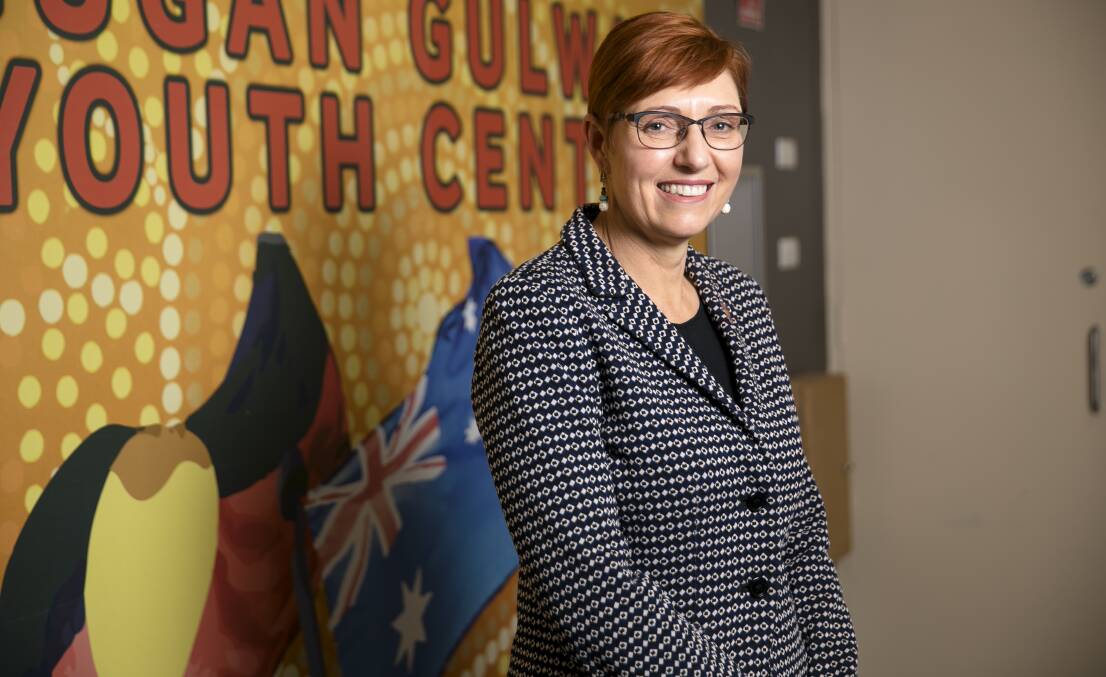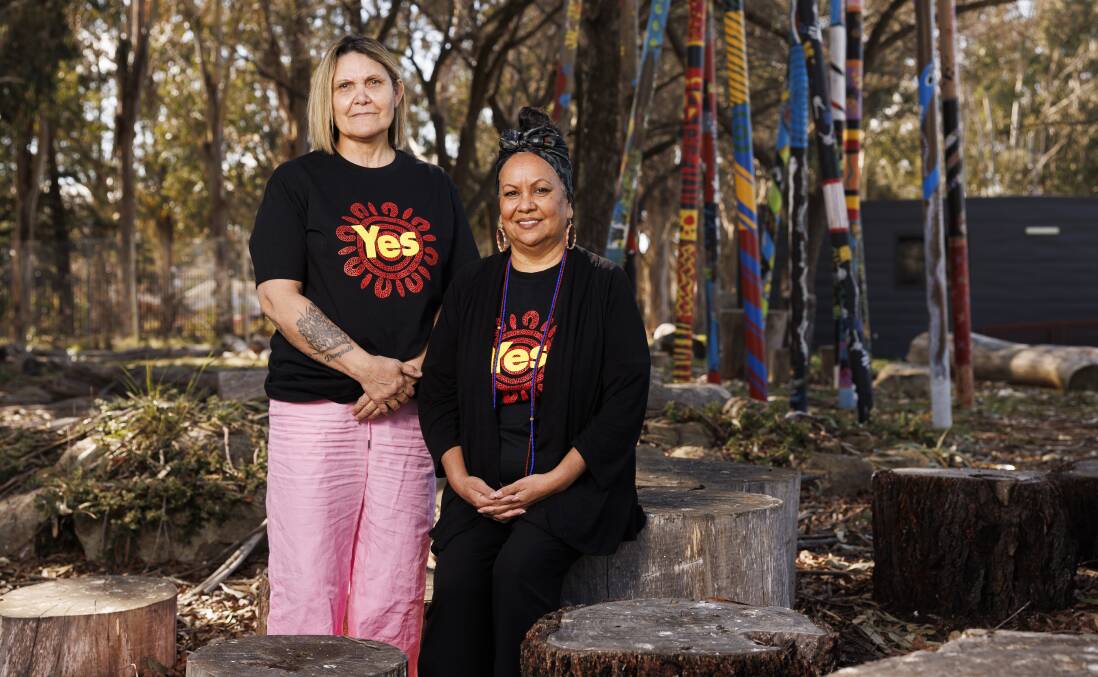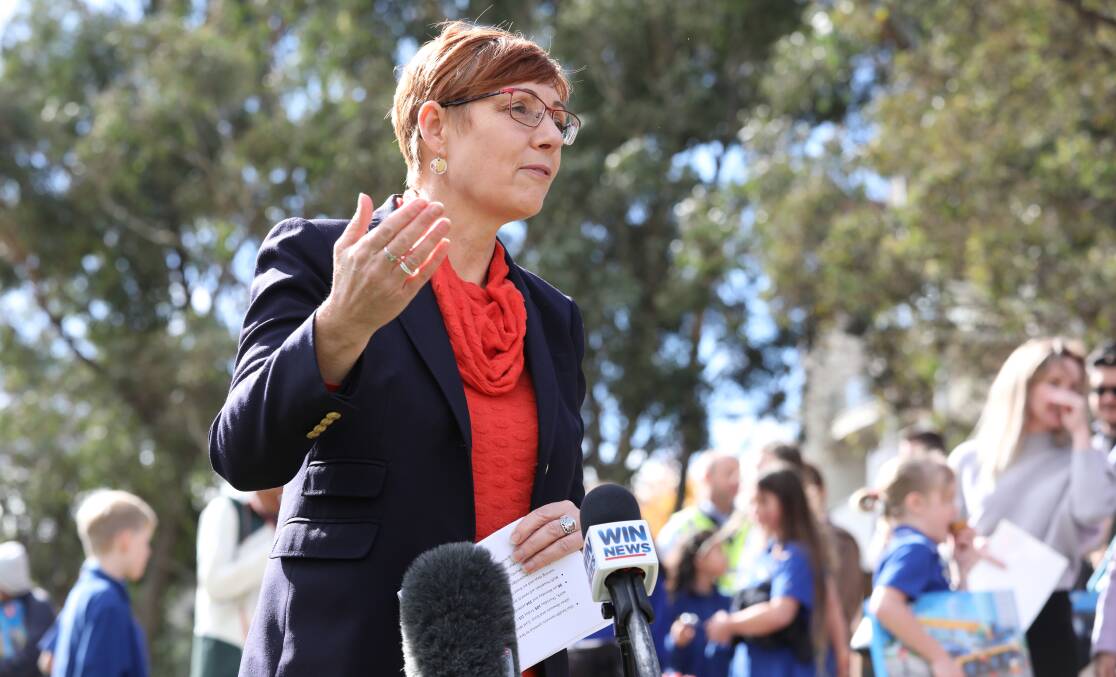Don't have enough information about the proposed Indigenous Voice to Parliament? The ACT Minister for Aboriginal and Torres Strait Islander Affairs has joined in moves to subvert the 'no' case by urging if you don't know, "Google it."
Rachel Stephen-Smith made the pitch as she described the "really important" work of - and her working relationship with - Australia's first First Nations advisory "Voice", the 15-year-old ACT Aboriginal and Torres Strait Islander Elected Body.
The elected body's leadership told The Canberra Times about the Indigenous-focused results attained for local people, how they would like the advisory body to be strengthened, and their frustrations with the ACT having the worst rate of Indigenous incarceration in the nation.
The elected body wants to be a stepping stone for a national constitutionally-enshrined Voice and work with it. Its deputy chair Paula McGrady has turned around the "no" slogan, "If you don't know vote no" by saying, "If you don't know, ask us."
"I think that's a fantastic response," Ms Stephen-Smith said.
"It is very frustrating, from my perspective, to hear the "no" campaign really promoting ignorance about the Voice rather than encouraging people to find out about it.

"So I would say yes, if you don't know, ask someone, Google it, go to a forum."
The elected body has been advising and challenging the ACT government since 2008. It consults with the local community and holds the government to account, and helped to avoid bad decisions, through the heads of each directorate, not ministers, at estimates-style hearings which can be watched live online.
But, Ms Stephen-Smith said it also meets with individual ministers to relay community feedback from a "trusted environment."
She said the elected body is not perfect, but it is there for "frank conversations" with the government and she insists it has delivered "real change" for the local Aboriginal and Torres Strait Islander community.
The minister cites the elected body's most significant outcomes as successfully advocating for older persons' housing and work that's being done across the ACT public service to address systemic racism.
"Are we there yet? Absolutely not. Do we need a partner to hold us to account? Absolutely, we do need that," she said.

The minister, who is also the Health Minister, has confirmed ACT Health is working to bring in 'birthing on country' support for First Nations mothers attending Canberra hospitals. "We are very much committed to moving in that space," she said.
But she, like the elected body, cannot talk up the territory's high rate of Indigenous incarceration. Aboriginal and Torres Strait Islander people are locked up in the ACT's one jail, Alexander Maconochie Centre (AMC), at 21.7 times the rate of non-Indigenous people.
Asked if it was a great disappointment, the minister said, "Yeah, absolutely."
Ms Stephen-Smith said First Nations interaction with the ACT justice system was a "complex matter" and "cross-government activity" was required. She said she would look into the matter raised by the elected body on Wednesday, that the cultural awareness training for Australian Federal Police officers is online, not face to face.
"I'll certainly be happy to follow up on that," she said.
The elected body leadership has also presented to the very top of government, the ACT cabinet.
"Now that's fallen off a little bit through the COVID period. But we're committed to re-instating that process where the chair and the deputy chair meet with the whole cabinet," the minister told The Canberra Times.
"And, in fact, the deputy chair just attended a cabinet meeting last week with the chair of the coalition of peak Aboriginal and Torres Strait Islander bodies, Pat Turner, to talk about our progress in closing the gap."
The closing the gap targets guide the current 10-year agreement between the elected body and the territory government which ends in 2028.

The ACT Audit Office this month found the government failed to properly oversee the implementation of the agreement while government directorates had not done enough to address about a quarter of 99 priority actions in the plan. The office found support for the local community is at risk through part-time membership and low voter turnout.
The Minister accepts the government is "not doing as well as we should be" and while she pointed again to significant COVID disruption, she said the overall governance needs to be reviewed and revised.
It is something that will happen after the likely October Voice referendum.
"We'll work with the Aboriginal and Torres Strait Islander community, whatever the outcome of the Voice referendum to say, 'Okay, well, how do we need to ensure that the voice that we already have here in the ACT is as effective as it can be?' Knowing that it's already delivered real change for the Aboriginal and Torres Strait Islander community," Ms Stephen Smith said.
She has flagged a possible strengthening of the elected body, a position desired by the body itself. The key questions are does it have enough authority and is it independent enough?
"I've talked with the elected body before about options for a full-time chair, potentially even full-time or part-time members that are really recognised and have a stronger role and a more independent support, and secretariat function," the minster said.
"That is, I think, the next step in an independent Aboriginal and Torres Strait Islander voice for the ACT."
The review process will need to await the referendum outcome to see how it will fit with whatever outcome it ends up being.
"I think a national Voice will, by its nature, be different. It will need to represent a wider range of disparate communities and interests, but we know that that is possible," she said.
"And it is vitally important that the national Voice is supported by regional voices and regional selection processes to ensure that those people who sit on the Voice are truly representative of the communities that they're representing and they serving."







